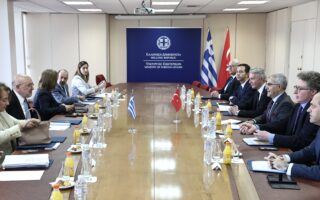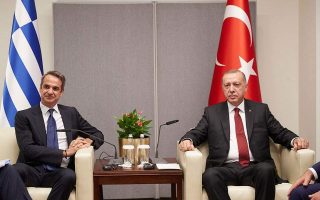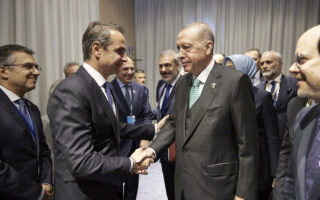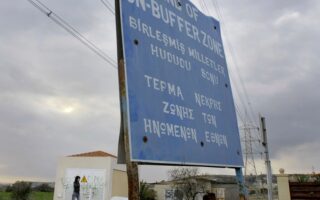Turkey’s path of no return, away from the West
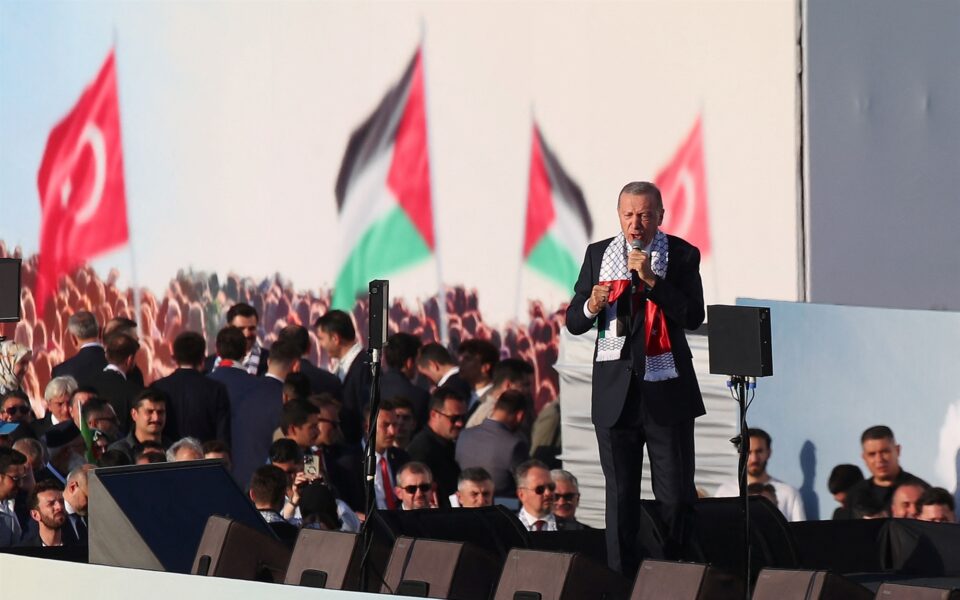
In the conflict between Israel and Hamas, Turkish President Recep Tayyip Erdogan made his choice. At first, he appeared to be ambivalent and maintain a relative balance (it should be noted that he had not unequivocally condemned the attack by Hamas), but over time his views became clear and more aggressive towards Israel, the West and the United States. As Israel’s operations in the Gaza Strip continued, there was an uproar inside Turkey, with all political parties openly opposing Israel.
We should remember that Turkey was one of the first countries to react to the attack on the al-Ahli Arab Hospital in Gaza, rushing to adopt Hamas’ view that Israel was responsible for it, and the Turkish parliament even issued a statement unanimously condemning Israel and calling on the rest of the Muslim countries to follow suit. Just a few days later, Erdogan’s far-right coalition partner and Nationalist Movement Party (MHP) leader Devlet Bahceli even called for military intervention in Gaza to protect the Palestinians. He also pointed out that Turkey’s security passes through Jerusalem, reinforcing the perception of the country’s role as an interregional ruler that aspires to serve as a protector of Muslims.
At the same time, Erdogan was emphasizing the humanitarian disaster taking place in Gaza, accusing the West of hypocrisy, until last Wednesday, when he came out and openly described Hamas as a liberation movement that protects its territories. He thus weakens his argument about “Kurdish terrorists” and is risking losing his footing in the West, although he does not expect much from it.
We know of course about the deep-rooted ties between Erdogan’s AKP and the Muslim Brotherhood. Turkey, however, seemed to be renouncing its relationship with Hamas, wanting to restore trust with Israel – until it was forced to choose. And it did so in the most deafening way, for both tactical and strategic reasons. At the tactical level, targeting Israel and the US satisfies domestic audiences and enables Erdogan to move – if he so chooses – more comfortably in approving Sweden’s entry into NATO without being blamed for failing to secure F-16 fighter jets in return. Also, his image in the Muslim world is strengthened, since he is presented as more daring than many Arab leaders, even though Turkey is a member of NATO. Acting as a quasi-religious leader, he moralizes and appears to advocate – even at the expense of Turkish interests – the protection of the weak and downtrodden. This, in turn, facilitates his request for the creation of a fairer world, with Ankara in a leading role.
But the most worrying thing – also for Greece – is that Erdogan has chosen a path of no return. He is investing in Turkey’s position with regard to political Islam, not always in a constructive way – i.e. in a role as a bridge with the West, but in contrast to the West. He does not look for diplomatic convergences, he bets more on divergences in order to become more liked by the Muslim audience (mainly by Muslim societies). However, by showing in practice Turkey’s distancing from the West and especially the US, it “is selling” this new position to gain the trust of leaders who are equally (if not more) suspicious of the West. Russian President Vladimir Putin has often praised Erdogan for his autonomous foreign policy, away from the dictates of the Americans.
Ankara is clearly leaning towards the East. It does not feel the obligation to facilitate its Western partners in their strategic plans. On the contrary it may even undermine them, disregarding the high stakes.
Now, Turkey is structurally differentiating its perception of world politics. It is not so much that it does not feel the need to engage with the West, but that it increasingly estimates that in a post-American international environment, aligning with the West is not in its best interest. Besides, Turkey’s current strategic perception presupposes its detachment from the West, so that it can get closer to the goal of diplomatic autonomy that will allow it to later evolve into an actor that will define its own destiny. All of the above will certainly not leave Greek-Turkish relations unaffected.
Erdogan no longer seeks a bridge-building role with Islam. He is betting more on confrontation to make himself more likeable to the Muslim audience.
Constantinos Filis is the director of the ACG Institute of Global Affairs and an associate professor at the American College of Greece.
